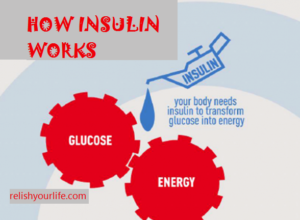There is a lot written and heard about diabetes type 2“the modern life style disease”. Controlling of blood sugar level in body is done by a small gland named “Pancreas”; it secretes two hormones that play the role of regulator of blood sugar. Functioning of human body is dependent on optimum blood glucose level which runs all organs and regulates their secretions.
What is blood sugar?
What we eat, gets converted to sugar or glucose after digestion. This sugar is used as energy source of our body. The amount of glucose (sugar) present in the blood of a human is the blood glucose level. Right range of glucose level as per WHO recommendations is classified as under;
- Normal fasting (no food for 8 hours before test) – 70 to 110 mg/dL
- Postprandial (PP) after 2 hours of eating – less than 140 mg/dL
- Random sugar level should be less than 200 mg/dL
What is Pancreas?
Pancreas gland is located in the lower abdomen right hand side below liver and is a leaf life structure. It secretes two hormones “Insulin & glucagon” Insulin is from beta cells and glucagon is from alpha cells. Both are responsible for the blood glucose regulation.
How blood sugar is regulated?
The body tightly regulates blood glucose level as a part of metabolic homeostasis. After digestion of the food there is a rise in the blood sugar level in this event pancreas secretes insulin hormone, which stimulates the cells in our body to use glucose, resulting a fall in glucose level. It also instructs liver to converts the excess glucose to glycogen which is stored in liver as a reserve to be used when required.
When glucose level falls below an optimal point glucagon hormone is secreted that instruct liver to convert the stored glycogen to glucose.
What is insulin insensitivity?
Consumption of high GI (Glycemic Index) foods leads to a sharp rise to blood glucose level followed by low dip in its level in a short period of time. Refined floor, bakery items, canned juices; aerated drinks are few food items with high GI. This over burdens pancreas gland and imbalance both the hormones. It leads to obesity (especially around stomach). Over a period of time these hormones lose their sensitivity to change in blood sugar level. The situation is insulin insensitivity and ultimately leads to type 2 diabetes.
How to avoid or overcome insulin resistance?
The best thing is that this is a reversible condition; with some precautions in daily diet and lifestyle the change is possible. Eating of fibrous food, whole grain items, barns, oats, pulses, nuts, fruits and vegetables triggers the reversal. If supported by active lifestyle and exercise results will be more promising.
So now you are clear and aware of the facts related to insulin insensitivity. If you are in the situation help yourself and get of it to lead a healthy life and say cheers to life…relish your life forever….

